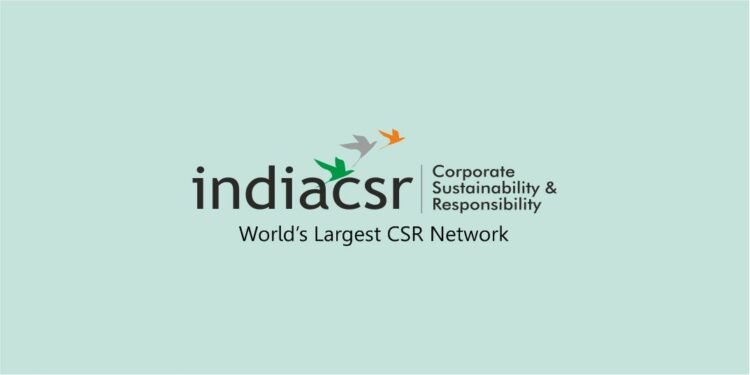With the second wave of covid-19 waning, experts are already warning of an impending third wave before the end of the year. In this time, access to vaccinations and awareness around safety from the pandemic are both paramount.
Verified, a global communications movement, powered by the United Nations in partnership with Purpose, aims to end the pandemic by empowering people around the world with science-based information, countering misinformation and building momentum for a global response that leaves no one behind.
The initiative is being led on ground by Centre for Urban and Regional Excellence (CURE), Chintan Environmental Research & Action Group, and Forum for Organized Resource Conservation & Enhancement (FORCE) CURE, Chintan and FORCE will be training 115 community leaders in 33 districts across Delhi.
CURE has been working in slums across Delhi to increase awareness on Covid appropriate behaviour. With Verified, CURE aims to expand their communication architecture to various digital engagement platforms including homegrown social media apps like Taka Tak and Moj.
Speaking about the campaign, Renu Khosla from CURE said, “The campaign is envisaged as a step closer to achieving safe, healthy and inclusive communities, which has been the underlying vision for our work. During the pandemic, slum and low-income communities have faced enormous challenges – economic, access to basic services, information and ability to isolate. This campaign and its credibility would help better inform communities; localizing the knowledge to their contexts, with stronger relationships that would nudge their integration within the city. As verified information from the campaign pushes people to get vaccinated, they will get back to rebuilding their lives disrupted by COVID-19.”
Chintan, has organized over 12,000 wastepickers, small traders and other waste workers to enable them to advocate for inclusive waste management under its Voice for Waste Programme. Chintan observed a severe vaccine hesitancy in a study they undertook in early May this year. In a study of 1271 persons residing in slums across Delhi and Ghaziabad, only about 7% were willing to be vaccinated. The rest refused repeatedly because of several misconceptions including that people are dying because of the vaccine or that it would render men impotent.
Purpose is a social impact agency that uses public mobilization and storytelling to help the leading organizations, activists, businesses, and philanthropies engaged in social fights, by creating campaigning labs and new initiatives that can shift policies and change public narratives when it matters most.
“The role of fake news, rumours and poorly-informed local influencers is palpable. Those who expressed (misplaced) fears claimed they received this information from WhatsApp and general chatter. They had not received any other kind of scientific information to encourage them to vaccinate. Such damaging misinformation seems to be filling in an information vacuum.”, said Bharati Chaturvedi, from Chintan.
Senior Campaigner, Kritica Mahajan, Purpose India says, “One’s understanding of Covid-19 evolves with every new insight, scientific discovery and strategy to protect health. Thereby making it difficult to distinguish outdated legitimate information from malicious ones, hence decreasing the efficacy of positive efforts to battle the growing cases of Covid-19. We believe that doctors and scientists need support to publish accurate and fact based public health information accessible to all. We are proud to associate with entities working towards this cause.”
Building on facts, according to COWIN data as on July 1, 2021, 45.78 lac men have been vaccinated as compared to 33.14 lac women. Hence, the gender gap is one such issue due to misleading and inaccurate information. This gap is much wider in Delhi as compared to some of the other states and union territories. Misformation around menstruation and vaccination can fuel such disparities further. The Verified campaign aims to engage with Delhi’s growing population of first generation internet users who are exposed to an incredible amount of information but without the necessary tools to combat misinformation.
Speaking further about the study, Chintan’s Bharati Chaturvedi said, “COVID19 has impacted everyone, but the poor waste pickers are disproportionately impacted. Hence it is imperative to overcome vaccine hesitancy in every pocket and to vaccinate the waste pickers to close the chapter on this endless pandemic. Vaccines must be made easily available, especially when we have enough of them. Instead of hoping that the poor will overcome multiple roadblocks and register or forgo a day’s earnings in these hard times, mobile units should roll out, on priority, in all slums. Our target is to reach out to 10,000 people. Getting people to vaccinate is also a key focus for us and we are hoping that we can shift from 7% to about 30% willing to vaccinate. We would have ideally liked that for everyone, but we will be happy with the small changes we make.”
CURE is a development organization that works with urban slum communities to un-think, reimagine, innovate, and de-engineer solutions for sustainable habitats. CURE has worked in several cities in diverse demographic, socio-cultural, geographic contexts since 2001, incubating slum upgrading models and helping cities prepare participatory plans/strategies for inclusive, equitable, ecologically resilient holistic development incorporating diverse issues like water, sanitation, health, gender and livelihood.
Chintan Environmental Research and Action Group is a non-profit, non-governmental organization established as a means of addressing issues of sustainable consumption and environmental and social justice. Our vision is inclusive, sustainable and equitable growth for all. Our mission is to ensure solid and electronic waste prevention and management takes place in a manner that is inclusive of the informal sector, environmentally sustainable and just, and based on the principles of the circular economy.







